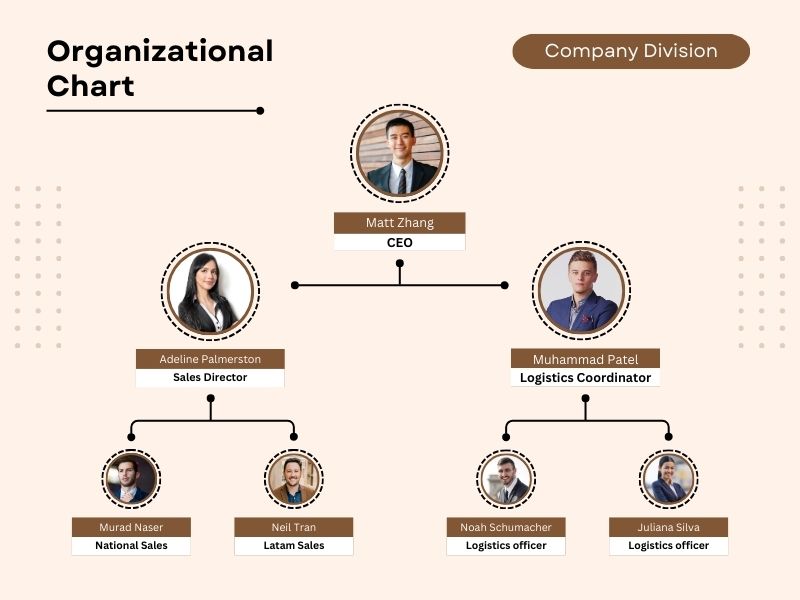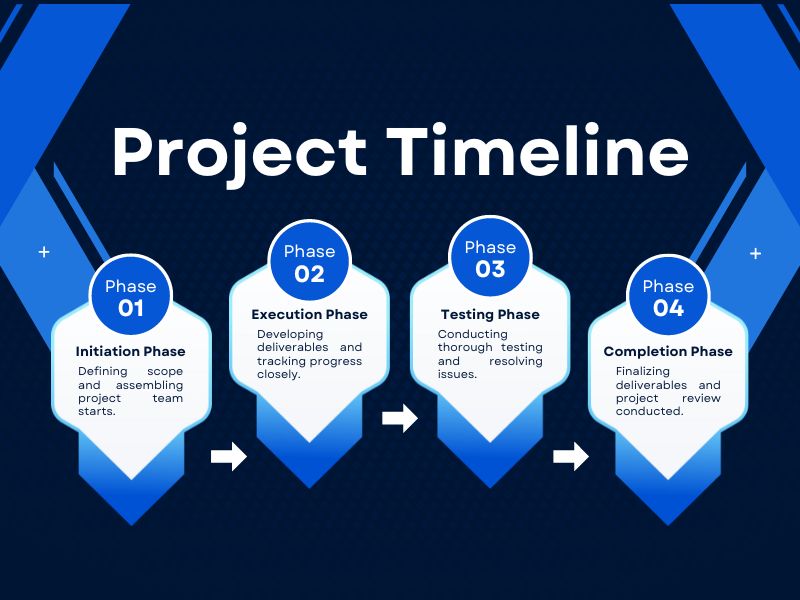Reading Time: 4 minutes
When it is determined that an organization needs a Custom CRM (Customer Relationship Management) system, it is usually because they have been using a packaged CRM system or a cloud-based SAAS (Software as a Service) version that no longer supports updates or adjustments. Alternatively, the business process model may be so specific or unique that it requires customized modeling and automation. An example of this is companies that execute implementation projects (such as telecommunications, networks, or engineering services) and need costing and approval processes tied to the sales proposal.
Whatever the case may be, starting a custom CRM project is still a software development project, but with the added complexity of working with the organization’s commercial executives, which is where the challenges arise.
But since the title of this article is “considerations,” let’s get straight to the point:
Defined Business Processes: If the organization does not have standardized processes and activities, there is nothing more to do. Simply do not start the project; first, define the processes and objectives, and only then can you think about automating. Many will argue that the path is made by walking, that once the organization sees the system, it will adapt, but in reality, that happens very rarely. Both for the organization and the company providing the custom CRM, if the business processes are not defined and documented, it is a huge risk to start the project. If they are not defined but there is a will to move forward, first model, document, test, and improve your processes. Then think about how a CRM system can optimize those processes.

Clear Leadership: There must be a clear directive from the organization’s leadership to its employees that a CRM will be implemented and everyone must support this objective as quickly as possible. A CRM is not an accounting system or a report generator; it is a solution that will be used by sales executives, who are untamed in their quest for commissions. If the head of this commercial team is not committed to this project, it is also a huge risk. Additionally, the scope must be clearly defined before starting the project, which is why point 1 must be clear; otherwise, the objectives will change at every project follow-up meeting, and it will never end, becoming tedious for the commercial team and the company developing the CRM. Also, if the general management of the organization tends to change the commercial manager every 3 or 6 months, this is also a risk factor.

Identify the Added Value: It is unlikely that the custom CRM will require development from “ZERO”; generally, a software package or a software solution that allows customization is used. Thus, this base solution serves as a platform to implement the CRM in the organization. Practical advice: do not try to use all the functionalities of that software package; it is better to deactivate everything present in the standard version and only activate what is necessary and develop what is lacking. It is very likely that only 30% of the CRM software package functionalities will be used, and the rest will be part of the custom development. And in the part where the software is used and customized, it is important to add value to the respective process. An example is quoting tools: if before, issuing a quote with the previous system took two or three days because approvals from different areas were required, a quoting tool can be developed that has the approval parameters from the areas (because the processes were previously modeled and documented) and reduce the time from 1 or 2 days to 1 or 2 hours or minutes if possible. The goal is to apply optimization in processes that elevate the organization’s competitiveness.

Leave Historical Data Migration for Last: I have seen several CRM projects fail due to the poor image created by migrating historical data, and that happens because historical data is generally garbage or contains errors. Do not invest much time in migration; if possible, do not do it, and if you do, validate the information first and only migrate what is essential. This is advice for both the organization and the CRM development service provider. Migrating historical data has “historically” caused many problems and undermines the credibility of the organization’s digital transformation.

Involve Sales Executives: Many organizations indicate that they need a CRM because their sales executives take the information with them when they resign, either in their emails or Excel files. A sales executive will always be reluctant to enter commercial management information into a CRM system that puts their client portfolio at risk and makes them dispensable. There are methods to involve the commercial team, one of which is to state that only sales fully managed in the CRM will be commissioned, or clients managed in the CRM will be retained. Most of the time, aggressive motivations work, but if the team is mature, it won’t be necessary. The goal is for commercial executives to use the CRM, enter relevant process information, and carry out all their commercial activities using the CRM system. Involving commercial executives in the project from the beginning is key to success.
Clearly Define the Scope: This consideration applies to both the organization and the development company. If this factor is neglected, both will come out horrified by the CRM project and any other development project in particular. It will become a tense environment, and instead of being a continuous improvement project, it will become a project where minimal effort is applied due to excessive unplanned costs by the development company and the boredom, pressure, and helplessness of the organization’s members. So take the time to specify, document, and measure the requirements, and have them approved by the organization in writing. It is not an exaggeration to have the organization’s executives approve the scope in writing. There are always managers who were never involved in any stage of the project who show up at the final presentation and fill the project result with criticism, simply because they were not considered at the beginning of it.

Understand the Process: Developing a custom CRM is not just about developing an application, and the development company must “understand” the impact of the solution on the organization. If they see it as “just another application to be installed and customized” or a “web page with commercial data,” it will be a failure. To ensure success, there must be an expert who knows the commercial process with the necessary authority to define the requirements on the organization’s side and a project manager involved in the organization’s success through the effective use of the technological solution. The development team should be involved with the commercial team’s objectives (while respecting the scope) and truly seek to optimize the business processes, because that is what a good CRM really does.
Summary:
To carry out a successful custom CRM development project, it is crucial to consider seven key points:
- Defined Business Processes: Before starting the project, it is essential that the organization has well-defined and documented processes and activities. Without a clear foundation, it is very risky to begin automation.
- Clear Leadership: It is essential that the organization’s leadership firmly supports the CRM implementation and that the commercial team is committed. Frequent changes in management can be a significant risk to the project.
- Identify the Added Value: A custom CRM does not necessarily require development from scratch. It is important to use only the necessary functionalities of the base solution and develop only what adds value to the process.
- Historical Data Migration: Migrating historical data should be a low priority as it can cause problems if the data is not valid. It is better to avoid it or do it carefully, migrating only the essential data.
- Involve Sales Executives: Sales executives should be integrated into the project from the start to ensure they use the CRM. Clear motivations, such as commissioning only sales managed in the CRM, can help.
- Clearly Define the Scope: It is vital that both the organization and the development company clearly define the scope of the project to avoid unexpected costs, tensions, and a heavy work environment.
- Understand the Process: Developing a custom CRM is not just about software, but a comprehensive solution that must be aligned with the organization’s business objectives. Involving an expert who understands these processes is key to the project’s success.
If you are looking to implement or need advice on how to implement a custom CRM system in your organization, do not hesitate to contact us at info@blionsoft.com.